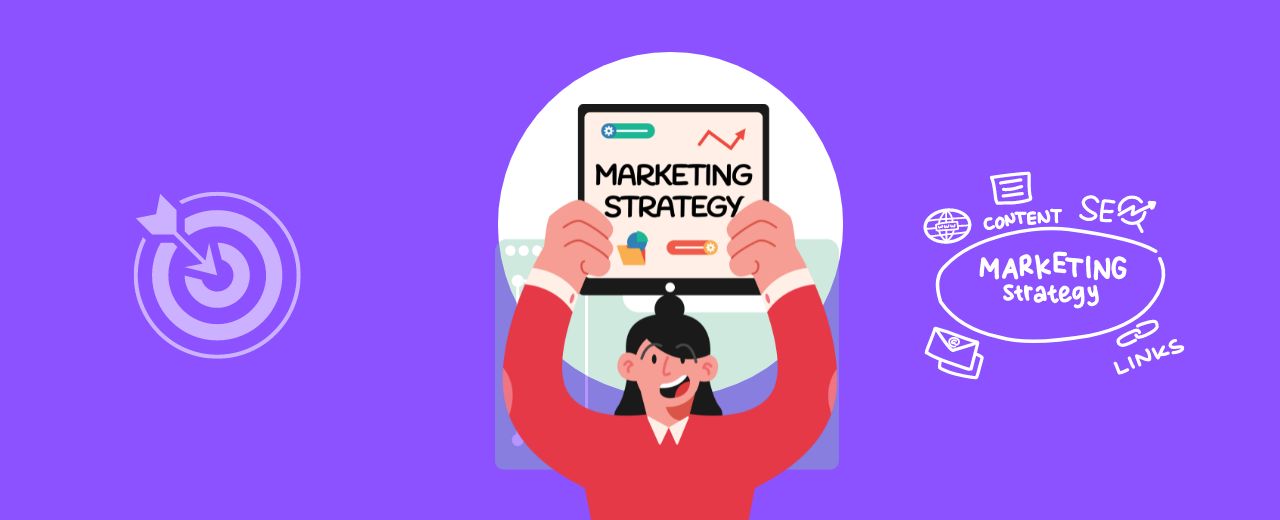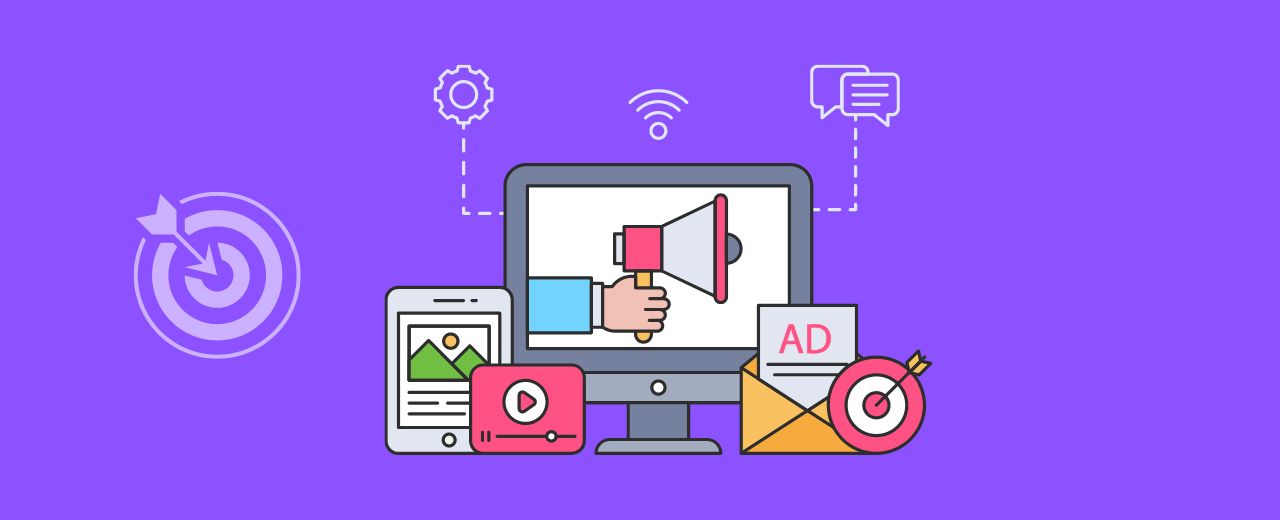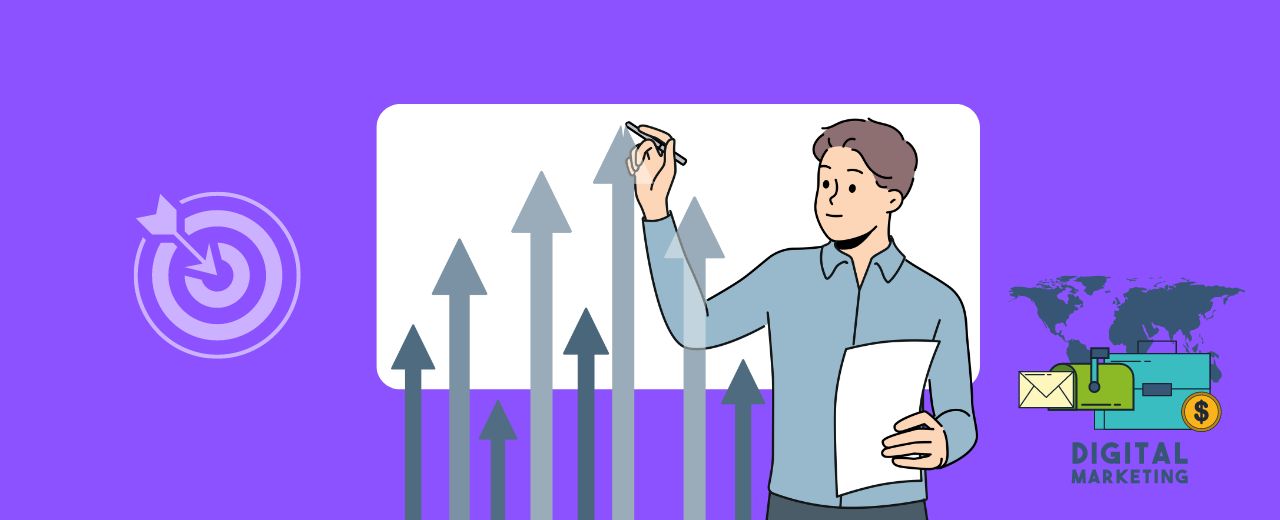Digital marketing helps businesses leverage the power of the internet and online tools to connect with a larger audience, boost their brand, and achieve remarkable success with digital marketing.

In this blog post, we are going to talk about the definition, benefits, and pro tips of digital marketing. Digital marketing has been continuously trending on Google for a few years.
Why is it trending, and what benefits can you get from it, you will know everything step by step in this blog post.
Sponsored Images & Videos: We have a Single Source of Income, Please Don’t Forget to Click Here For 5 Seconds. Thanks,,😇
Table of Contents
I. Digital Marketing Definition

A. What is digital marketing?
Digital marketing is using the internet and digital technologies to promote and advertise products, services, or brands to reach a wider audience.
B. Why is it important for businesses?
Digital marketing is important for businesses because it helps them connect with customers online, increase their brand visibility, and reach a larger audience, leading to potential growth and success.
II. Different Channels of Digital Marketing

A. Websites and online presence
Websites and online presence mean that businesses have their own special place on the internet, like a website, where people can find information about the business, what it sells or offers, and communicate with it. This helps the business look trustworthy and connect with possible customers.
B. Social media marketing
Social media marketing is when businesses use platforms like Facebook, Instagram, and Twitter to promote their products or services, engage with customers, and build brand awareness.
C. Email marketing
Email marketing is a strategy where businesses send emails to people interested in their products or services, to share updates, special offers, and useful information, helping to stay connected with customers and build relationships.
If you are going to do email marketing, then this feature will help you a lot. Let us know, what those features are.
- Segment: Send emails with relevant content to the right audience.
- Keep in mind that emails should look good according to the mobile device.
- Make a campaign with scheduling.
- After, creating a campaign always check the a/b tests.
D. Search engine optimization (SEO)
Search engine optimization (SEO) is a method used by businesses to make their website more visible and rank higher in search engine results, so that more people can find their website when they search for related topics or products.
Pay-per-click (PPC) advertising is a type of online advertising where businesses only pay when someone clicks on their ad, allowing them to reach potential customers and drive traffic to their website or landing page.
III. Benefits of Digital Marketing

A. Wider reach and global audience
Wider reach and global audience mean that businesses can reach and connect with people from all around the world through the internet, expanding their customer base and potentially selling their products or services to a larger number of people.
B. Cost-effective compared to traditional marketing
Cost-effective compared to traditional marketing means that digital marketing methods are more affordable and budget-friendly for businesses compared to traditional forms of advertising, such as TV commercials or print ads, allowing them to save money while still reaching a wide audience.
C. Targeted ,marketing and customer segmentation
Targeted marketing and customer segmentation mean that businesses can focus their marketing on particular groups of people who are more likely to be interested in what they offer.
By doing this, businesses can create personalized messages and promotions that are more likely to resonate with those specific groups, making their marketing campaigns more effective and targeted.
IV. Key Components of a Digital Marketing Strategy

A. Setting goals and objectives
Setting goals and objectives means deciding what a business wants to achieve through its digital marketing efforts, like increasing sales, growing brand awareness, or gaining more website visitors, and then planning specific actions and strategies to reach those goals.
B. Identifying target audience
Identifying the target audience means figuring out who the ideal customers are for a business, and understanding their interests, needs, and preferences so that the business can create marketing messages and strategies that specifically appeal to and resonate with those particular people.
C. Creating engaging content
Creating engaging content means making interesting and captivating material, like articles, videos, or social media posts, that grabs people’s attention and keeps them interested.
They enjoy and want to interact with the content, ultimately helping the business to connect with its audience and build stronger relationships.
D. Measuring success and making improvements
Measuring success and making improvements means keeping track of how well a business’s digital marketing strategies are working, such as by analyzing website traffic or social media engagement and using that information to identify what’s working well and what can be improved.
So that the business can make changes and become even more successful in reaching its goals.
V. Examples of Successful Digital Marketing Campaigns

A. Case studies of brands using digital marketing effectively
Case studies of brands using digital marketing effectively are real-life examples that show how businesses have used online tools and strategies to achieve success, such as increasing their sales or gaining a large following on social media, providing inspiration and ideas for other businesses to learn from and apply to their digital marketing efforts.
B. Impact of social media influencers on marketing
Social media influencers have a big effect on marketing because famous people on platforms like Instagram or YouTube can persuade their followers to buy certain products or services.
When influencers recommend something, their followers are more likely to trust and purchase it, which is why businesses often include influencers in their marketing plans to reach their target audience successfully.
VI. Potential Career Opportunities in Digital Marketing

A. Roles in social media management
In social media management, people have specific jobs to take care of a business’s social media presence. This includes things like making posts, replying to comments and messages, studying data and trends, and connecting with the audience to make the brand known and keep a good image online.
B. Content creation and marketing
Content creation and marketing involve creating valuable and engaging material, such as articles, videos, or social media posts, and then promoting and sharing that content to reach and attract the target audience.
It’s about making interesting and useful content that people will enjoy and find helpful, while also spreading the word about the business or brand.
C. Data analysis and digital advertising
Data analysis and digital advertising mean looking at and understanding the information collected from websites or social media to see how people are interacting with a business online.
This helps businesses make smart choices about how to promote their products or services and improve their ads, so they can connect with the right people at the right moment.
VII. Tips for Being a Responsible Digital Citizen

A. Being mindful of online privacy and security
Being mindful of online privacy and security means being careful about what personal information you share online and taking steps to protect it.
You should be aware of potential risks and take measures to keep your information safe, like using strong passwords, being cautious about sharing personal details, and being careful about the websites and apps you use.
B. Respecting others' digital spaces and avoiding cyberbullying
Respecting others’ digital spaces and avoiding cyberbullying means being friendly and thoughtful to others when using the internet. It’s essential to be polite and avoid saying hurtful things or being mean to others online.
We should never bully or harass anyone online and work together to create a happy and safe online community where everyone can have a good time.
VIII. Conclusion: Define Digital Marketing

A. Recap of the importance of digital marketing for businesses
Recapping the importance of digital marketing for businesses means summarizing why it is valuable and necessary. Digital marketing helps businesses reach more people, promote their products or services, and grow their brand.
It allows businesses to connect with customers online, save money compared to traditional marketing, and target specific audiences effectively. Overall, digital marketing plays a vital role in the success and growth of businesses in today’s digital age.
B. Encouragement to explore and learn more about this exciting field
It’s motivating and inspiring students to discover and gain knowledge about digital marketing. By exploring this field, students can understand how businesses use the internet and online tools to promote their products or services.
It opens up opportunities to learn about various digital marketing strategies, such as social media marketing and content creation, and how they can be part of this dynamic and rapidly evolving industry.

LET’S TALK: Feel free to ask any questions you have.
